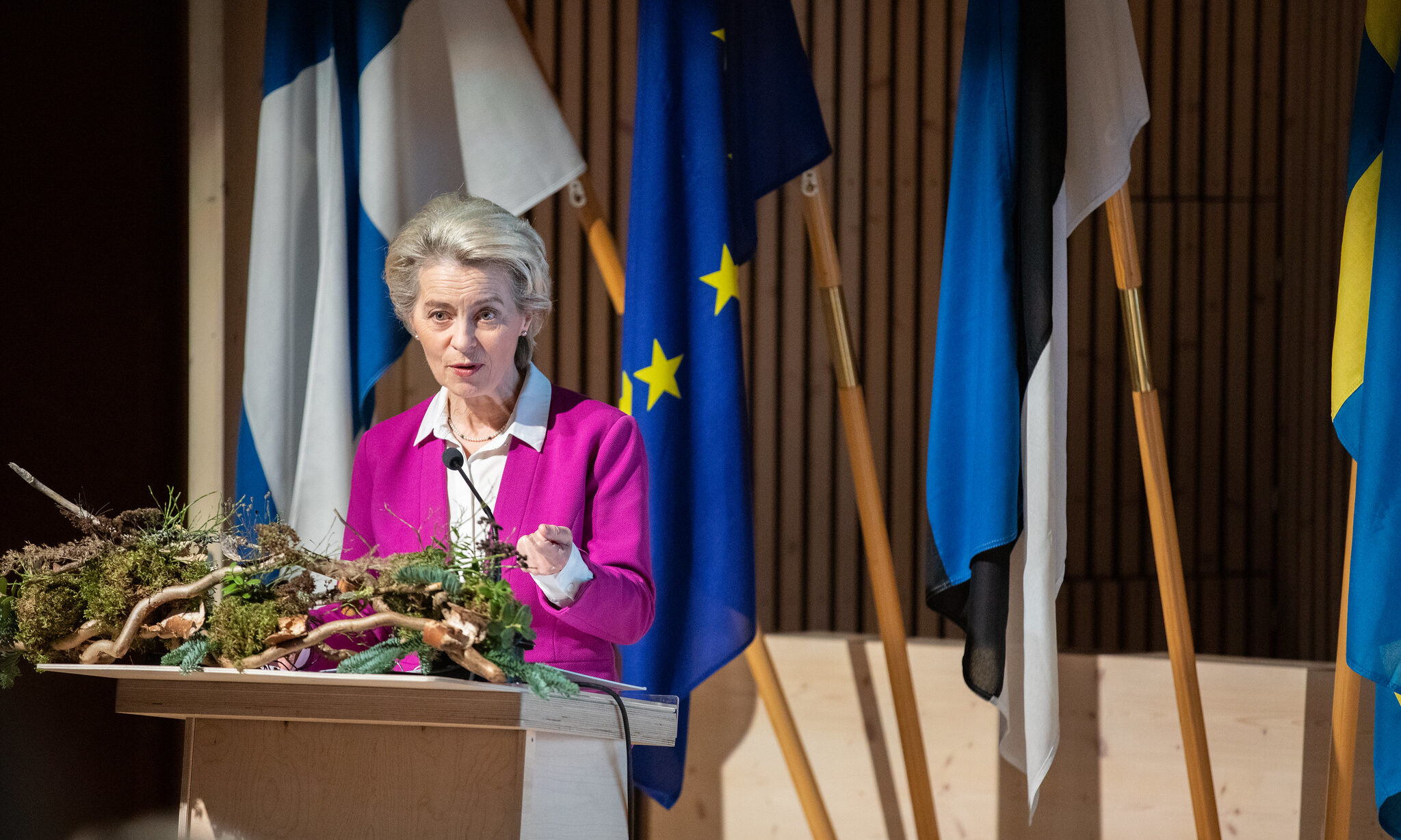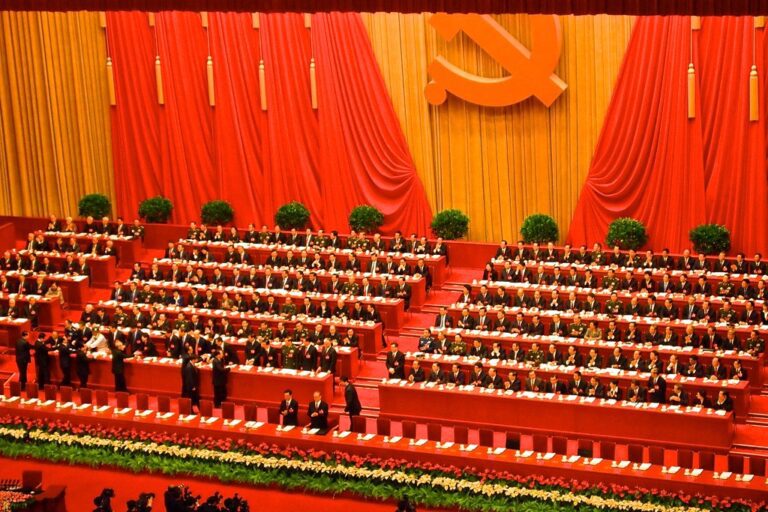
With the announcement of new vice-presidents and commissioners, CHOICE has gathered a group of experts to provide insights on the new European Commission and its potential implications – pending confirmation by the European Parliament – for the EU’s China policy. Given the significant portfolios assigned to the V4 and Baltic states, the insights focus on these two Central and Eastern European (CEE) sub-regions.

Dominika Remžová (@DominikaRemzova)
China Analyst (Economy) at the Association for International Affairs (AMO), Czech Republic
The announcement of new commissioners follows months of intense competition among member states for economic portfolios. The rising importance of these portfolios is not surprising considering the EU’s economic security and de-risking agendas, both of which gained prominence during the first Von der Leyen Commission. Indeed, the substantial number of economy-related portfolios – five of which are held by CEE commissioners – signals a clear prioritization of economic considerations under the new Commission.
While not all recommendations from the Draghi report on European competitiveness are expected to be adopted, the mission letters sent to the new commissioners indicate that Von der Leyen is likely to embrace several of his suggestions, such as those related to the need for scaling up. At the same time, concerns have already been raised about the overlapping responsibilities among several commissioners, which could complicate the implementation of concrete actions under their respective areas of purview.
Whereas decarbonization and competitiveness have been given to Spain’s Teresa Ribera Rodríguez, France’s Stéphanie Séjourne has been assigned the industrial strategy portfolio. Moreover, digitalization has been designated as a separate portfolio under Finland’s Henna Virkkunen. All of this reflects Von der Leyen’s commitment to advancing the EU’s green and digital transitions while incorporating some of Draghi’s recommendations.
However, the appointments also reveal limits to any substantial changes in the EU’s foreign economic policies, including its China policy. The Commission is predominantly composed of Von der Leyen loyalists and neoliberal technocrats who are now endorsing elements of protectionism. This trend is evident in the CEE appointments as well, with Latvia’s Valdis Dombrovskis remaining responsible for the EU’s overall economy, Poland’s Piotr Serafin for the budget and Slovakia’s Maroš Šefčovič for trade and economic security.
Neither Slovakia nor Poland are critical of China, at least when compared to their Czech and Baltic neighbors. Several Slovak MEPs have expressed concerns regarding the current government’s investment decisions and its ability to safeguard the country’s economic security. Nevertheless, Šefčovič has played a leading role in initiatives aimed at enhancing the EU’s strategic autonomy, such as the European Battery Alliance and the Critical Raw Materials Board. All in all, the EU is likely to continue on its de-risking path, adopting a more critical stance on China, although the structural limits to any more substantive changes in the bloc’s China policy are likely to persist.

Dominika Urhová (@DUrhova)
China Analyst (Foreign Policy) at the Association for International Affairs (AMO), Czech Republic
The incoming Commission is likely to adopt a more assertive stance on China, putting Beijing higher up on the EU’s list of priorities. By appointing Estonia’s former Prime Minister Kaja Kallas as the High Representative for Foreign Affairs and Security Policy, the EU sends a clear signal to both Russia and China. While underscoring that Russia will remain on the EU’s agenda, this appointment also conveys that Beijing’s approach to the Russian war in Ukraine will influence the future of EU-China relations.
Given the EU’s growing need to diversify its trade and investment relations, the Czech Republic stands to play a pivotal role in shaping the EU’s position on China. The appointment of Jozef Síkela as the Commissioner for International Partnerships should be viewed not as a setback – despite of what some may say – but as an opportunity for Czechia to play a greater role in elevating the EU’s status vis-à-vis Beijing. In his role, Síkela will oversee the EU’s economic security efforts, focusing on diversifying supply chains, opening new markets for European companies, and strengthening the EU’s cooperation with Africa, ASEAN, and other Indo-Pacific partners, such as Australia, Japan, South Korea, and New Zealand.
A critical aspect of Síkela’s responsibilities will be unlocking the potential of the EU’s Global Gateway initiative to counter China’s influence in the Global South by kick-starting large-scale infrastructure developments that could transform the initiative into a viable alternative for China’s Belt and Road. The initiative is expected to attract investments of up to €300 billion, presenting significant opportunities for the international expansion of EU businesses. He will also work to ensure the EU’s access to critical raw materials such as lithium or green hydrogen – essential for producing batteries and semiconductors – to further mitigate China’s growing global dominance in these sectors.
At a time when economic security, supply chain diversification, and de-risking are the buzzwords defining the EU-China relations, the role of the Commissioner for International Partnerships will be crucial in shaping the future of this relationship.

Raigirdas Boruta (@RaigirdasBoruta)
Policy Analyst at Government Strategic Analysis Centre (STRATA) & Associate Expert at Eastern Europe Studies Centre (EESC), Lithuania
The re-election of Ursula von der Leyen and the unveiling of the new European Commission signal a commitment to continuity, with a likelihood of closer alignment with the US in addressing challenges posed by China. This alignment remains viable as long as the US maintains its current approach to China, although the victory of Donald Trump in the upcoming presidential election could introduce significant unpredictability.
The ongoing focus on de-risking and reducing dependencies resonates with Lithuania’s calls for a united European response to Chinese economic coercion and influence, especially following the multidimensional pressure campaign against Lithuania over Taiwan. However, the portfolios with the potential to significantly influence the EU’s China policy – such as trade and economic security, competition, and industrial strategy – have been assigned to nominees from countries not typically known as ‘China hawks.’ Additionally, the divergence in views among member states on economic security may further complicate efforts to adopt a stronger approach, as advocated by Lithuania.
The appointment of Estonian Kaja Kallas as the EU’s top diplomat is significant for the Baltics, as it reinforces a tougher stance on authoritarian states while aligning with Lithuania’s hardline approach to ‘unfriendly’ countries. However, despite their united stance on Russia, the Baltic states differ in their approaches to Beijing. Estonia is, for example, more cautious on the economic security front.
Lithuania’s nominee, former Prime Minister Andrius Kubilius, was appointed as the EU’s first defense commissioner. As a member of the Inter-Parliamentary Alliance on China, which Beijing vehemently opposes, Kubilius will likely continue supporting efforts to counter Chinese malign influence, especially in CEE, although this position may offer limited influence on shaping the EU’s China policy.
Over the next five years, the EU is likely to navigate a delicate balance between economic engagement with China and the pursuit of a level playing field. So far, Lithuania’s hardline approach to China has not garnered widespread support within the bloc. With parliamentary elections approaching, a post-election review of Lithuania’s China policy is possible. The new Commission may be receptive to Lithuania’s advocacy for a tougher, unified approach to China, although recalibrating the policy to align more closely with the broader bloc on this issue could prove more productive.

Elzė Pinelytė (@ElzePinelyte)
Contributor at the Eastern Europe Studies Centre (EESC), Lithuania
The Strategic Compass is likely to play a pivotal role in guiding the EU’s China policy under the new Commission, with the leadership of this initiative shaped by key figures from the Baltics. Lithuania’s Andrius Kubilius will serve as the first-ever Commissioner for Defense and Space, while Estonia’s Kaja Kallas takes on the role of the EU High Representative for Foreign Affairs and Security Policy.
Both are known for their vocal criticism of Russia and support for Ukraine, suggesting that their perspective on EU-China relations will be heavily influenced by the China-Russia axis and China’s position on the Russian war in Ukraine. Kubilius is also a staunch advocate of Taiwan, who has previously supported Taiwan’s accession to the WHO and was part of the first European Parliament delegation to visit Taiwan in 2021. Together, Kubilius and Kallas are thus expected to adopt a tougher stance on China, particularly considering Russia’s aggression in Ukraine and China’s assertiveness toward Taiwan. As a result, they might contribute toward revising the EU’s long-standing categorization of China as ‘partner, competitor, systemic rival’ to include the ‘security threat’ dimension.
Additionally, Latvia’s Valdis Dombrovskis, who assumes the economy and productivity portfolio and is also a staunch supporter of Ukraine, is likely to maintain realistic expectations regarding China’s purported constructive role in Ukraine’s reconstruction. Dombrovskis will be mindful of China’s lack of commitment to halting Russian aggression, scrutinizing any potential Chinese involvement while citing security considerations.
There are two key developments that warrant close observation. First, as China’s activities in the South China Sea, particularly around Taiwan and the Philippines, are increasingly aggressive and thus increasing a potential outbreak of conflict or crisis that would have severe implications for the EU, Kallas will need to enhance and broaden the EU’s engagement with democratic partners in the Indo-Pacific. The aim is to contain the security threat posed by China and implement strategic diversification to reduce dependency on it.
Second, the space aspect in Kubilius’ portfolio represents a new dimension in the EU’s China policy. Over the past decade, China has strengthened its space and counterspace capabilities to conduct cyberattacks on satellite networks for espionage and data theft purposes, or other forms of informatized warfare. Kubilius may therefore need to focus on building greater resilience against the security threats that China poses in the realm of space.
Written by
Dominika Remžová
DominikaRemzovaDominika Remžová is a China Analyst at AMO, specializing in Chinese economy and industrial policy, supply chains, critical raw materials, electric vehicles and, more generally, Chinese foreign policy. In the past, she contributed to Taiwan Insight and The Diplomat, among others. Dominika is pursuing her PhD in Political Science and International Relations at the University of Nottingham. She earned her Master's degree in Taiwan Studies from the School of Oriental and African Studies (SOAS) in London and her Bachelor's degree in Chinese Studies from the University of Manchester.
Dominika Urhová
DUrhovaDominika Urhová is a China Analyst at AMO, specializing in China's foreign policy, Cross-Strait relations and China's influence in the Middle East and the Western Balkans. In the past, she contributed to the Middle East Policy Journal and to the research outputs of the Observer Research Foundation. Dominika holds a Master's degree in Security Studies and Diplomacy from Tel Aviv University and a Bachelor's degree in Development Studies with a concentration in Economic Development from Lund University in Sweden.
Raigirdas Boruta
RaigirdasBorutaRaigirdas Boruta is an Associate Expert at the China Research Program within the Eastern Europe Studies Centre in Vilnius and a PhD candidate at Vilnius University. His research interests include sinology, Chinese foreign and domestic policy, and the history of the PRC.
Elzė Pinelytė
ElzePinelyteElzė Pinelytė is Associate Expert at the Geopolitics and Security Studies Center (GSSC), Lithuania, where she studies China's domestic politics and foreign policy, with a focus on Sino-EU relations and its recent developments.


